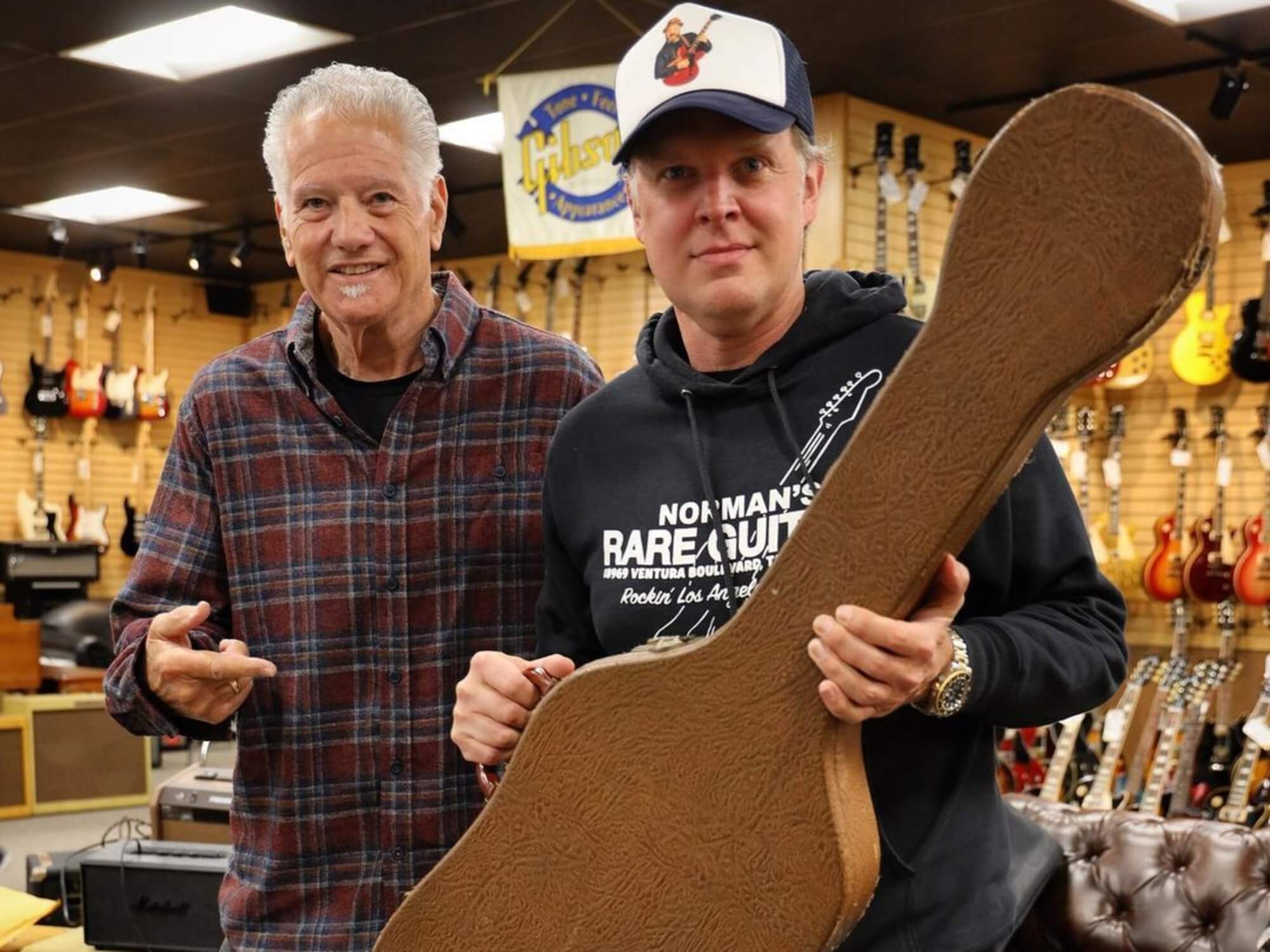Norman’s Rare Guitars founder says people used to call him “stupid” for collecting guitars
“When they got to be about $50,000 people started saying, ‘You know, maybe it’s a pretty good investment.’”

Image: Instagram via Norman’s Rare Guitars
Norman Harris, founder and owner of the legendary LA store Norman’s Rare Guitars, has spoken about the way people used to dismiss his guitar-collecting hobby as “stupid” or “crazy”.
As respectable – and exciting – as the vintage guitar business might be now, collecting guitars didn’t used to be quite as glamorous back in the day – with its fair share of naysayers, as Harris explains to guitar star and aficionado Joe Bonamassa in the latest episode of Live from Nerdville.
Asked if he still remembers the first guitar he bought, Harris replies, “I do. I remember buying a blonde 335 that everybody said I was crazy.”
“But when I first started buying and selling guitars, the golden price for a nice Sunburst Les Paul was $800. And people would go, ‘Norm, you paid 800 bucks for that. What are you, out of your mind?’ Well, then they got to be $1500. And people would go, ‘$1500!? You got to be stupid. You know how many new guitars you can buy for that?’”
“And they got to be $2500,” he continues. “Again, they thought it was stupid. Got to be $5000; $10,000. When they got to be about $50,000 people started saying, ‘You know, maybe it’s a pretty good investment.'”
Elsewhere, Harris also highlights the rarity of vintage guitars maintaining their original form over time, given that vendors would often try and sell various gear add-ons along with the instrument.
“A lot of time back in the day, like in the ’70s, people would come into a music store with a nice guitar,” he says. “And the music store owner would go, ‘You know what you need? You need a new set of pickups or tuners for that guitar.’”
“That doesn’t make them bad guitars. And hopefully, you can get them restored back to mostly their original state, but the ones that are left intact are as valuable as they are, because they didn’t get sold that bill of goods.”
Watch the full interview below.
